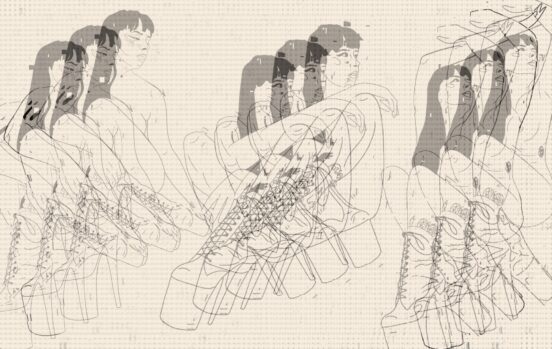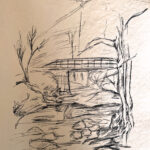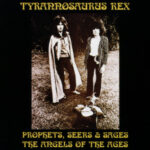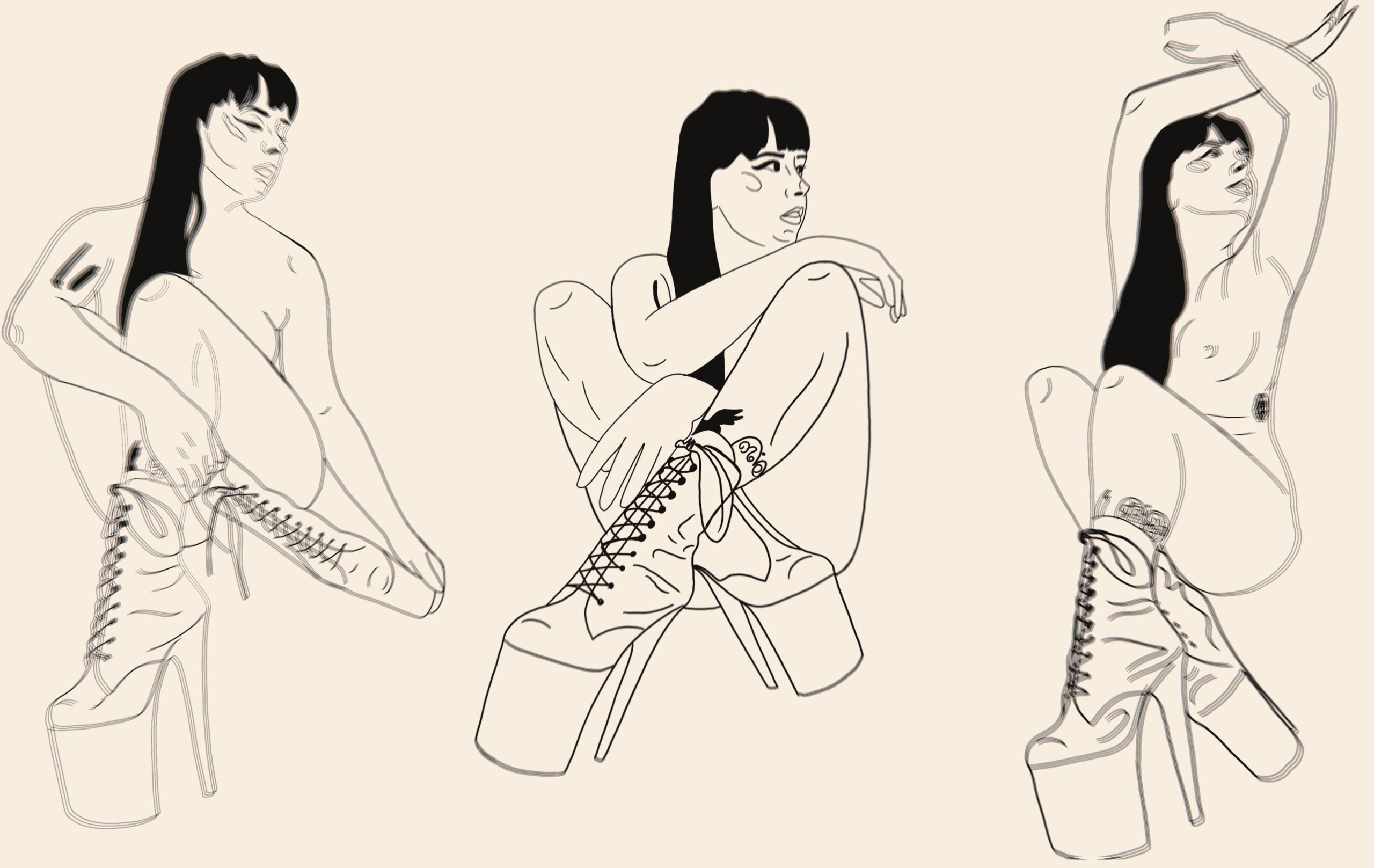
I have a confession to make.
I love showgirls. I love them. I’ve loved them since I was a little girl. I loved the way they commanded a room, I loved the way that they sparkled. I loved how they knew exactly what they were worth. I loved the feathers, the fans, the glamour. I loved that they were larger than life, confident, other-worldly and special. I loved the way they made the space work around them. I loved how when they were in a line, kicking and performing and dancing, that they were this wall of female unity, female power. When I was a little girl I used to love watching women get ready, I loved they way they’d sit in front of their mirrors and apply their lipstick and their perfume and smile at the mirror and transform into something else, I used to sneak in and steal their makeup and use my costume box to pretend I was a little show girl too. I love showgirls.
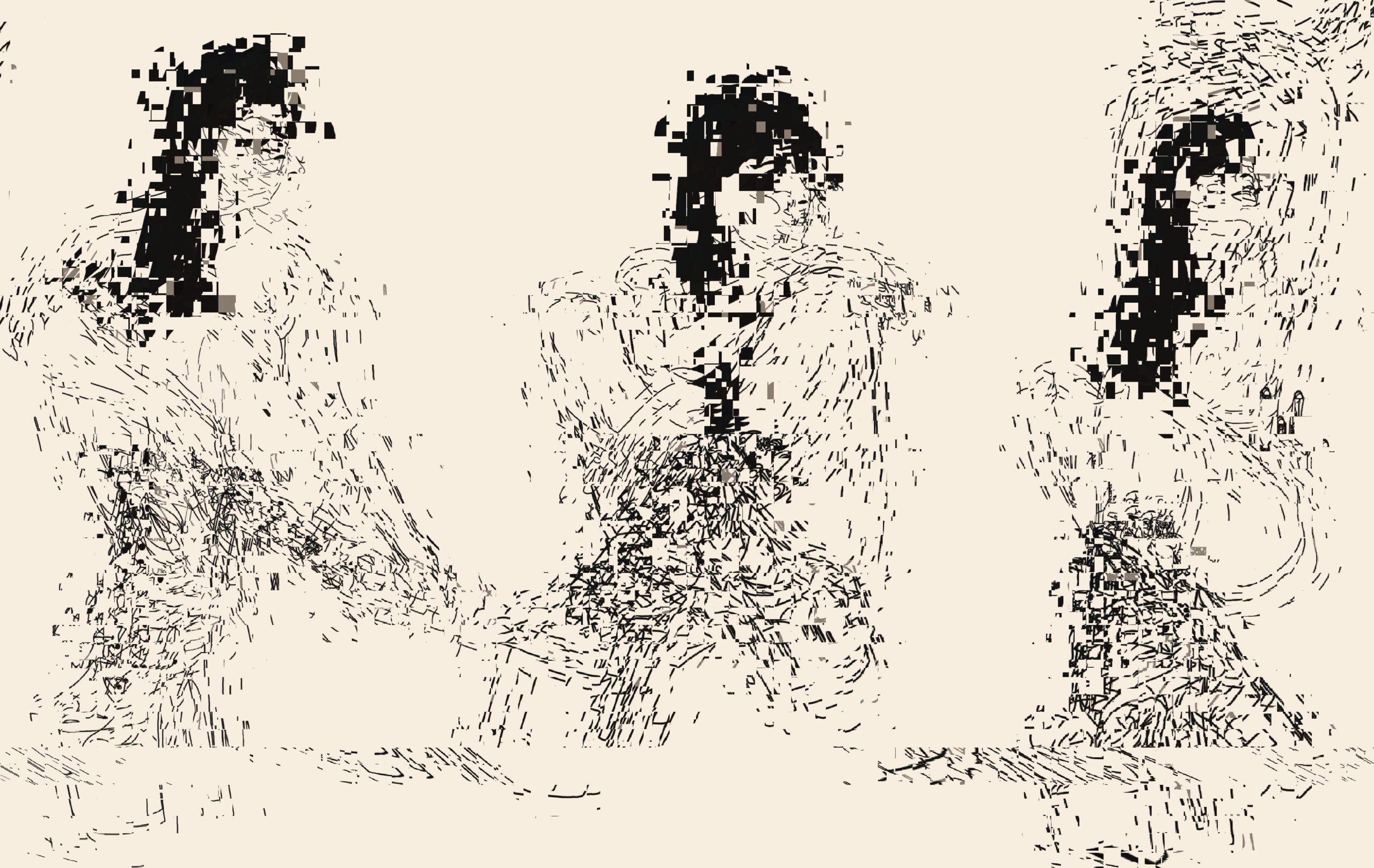
But there was a tiny, tiny issue. I was raised by women. Thank God! But none of the women I was raised with were confident in their own bodies. I can’t remember the first time mum was on a diet, or my cousin was on a diet, or a female role model touched clothes in a shop and sadly lamented that they’d wear that if they were thinner, or their boobs were perkier, or their thighs were less bumpy. And it absorbed into me, without me meaning to pick it up. By the time I was ten I could quite accurately tell you the differences between the Atkins Diet, WeightWatchers, Scottish Slimmers, Slimming World and SlimFast. The weekly trips to the Salvation Army Hall for my mother and aunt’s weigh in was something I was taken along to, because there was no one else to look after me. Week after week, I watched a hall of women convinced they’d love themselves if the scales dropped another 3lbs, and it soaked into me. By the time I was 16, showgirls were just people I envied. I envied them so much I hated them. I wanted desperately to be sparkly, and special, and command a room and wave my feathered fans with a cool knowledge I was in control. But instead, I saw only what I had absorbed – I couldn’t be like those women, because my hips were too big and my boobs were too saggy, and my chin was not defined enough. I had soaked in all the insecurities I’d heard women around me hurl at themselves, and started carrying them as my own insecurities. Women who were confident enough to get changed naked in gym lockers were to be feared.
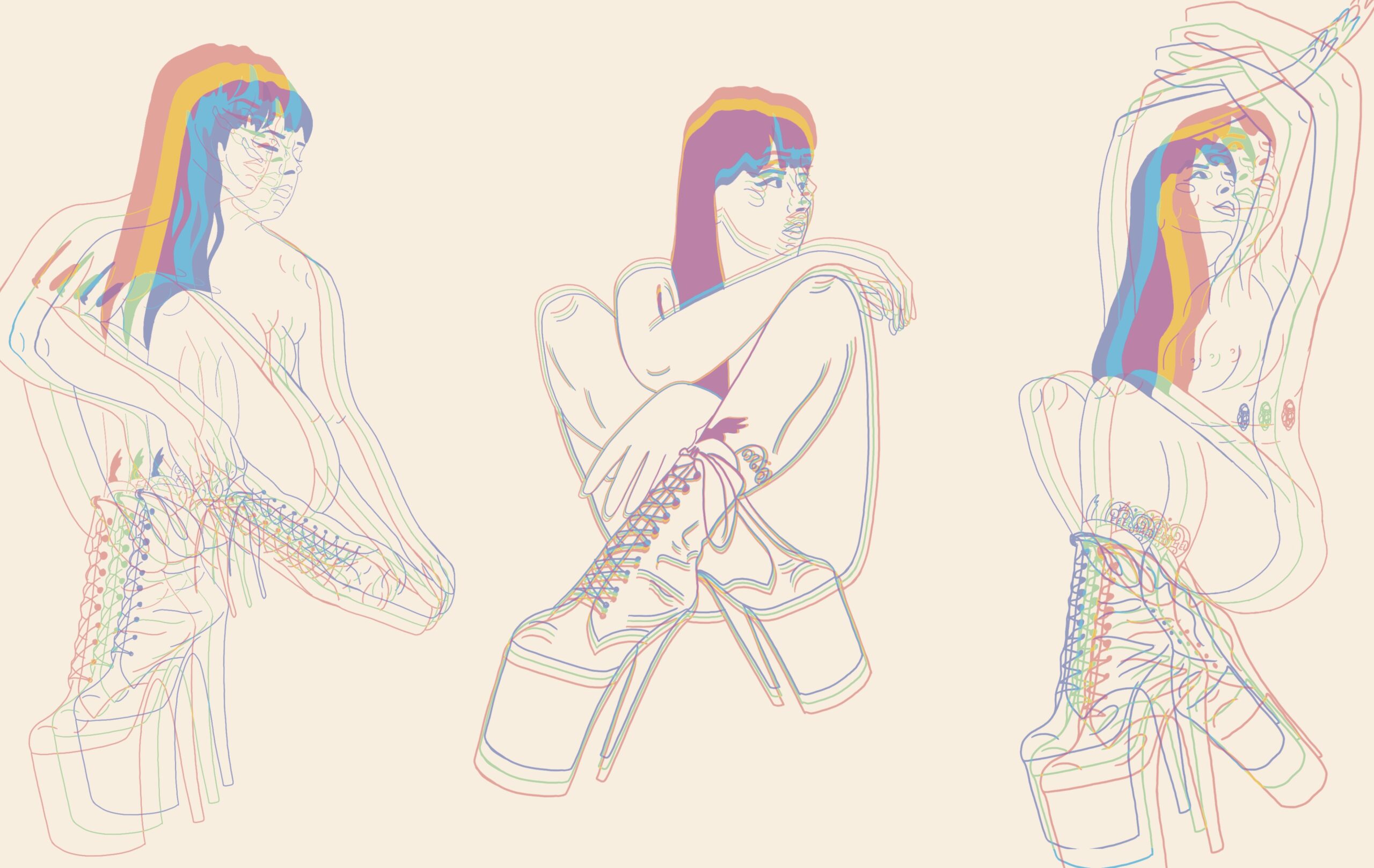
So, I moved city at about 18. And one night a friend said there was a burlesque show in some dive bar and they wanted to go. I immediately grabbed my wallet. The bar was full. I remember sitting on the sticky, dirty floor near the stage and watching the show. I was transfixed. She was beautiful – otherworldly, confident, she commanded the attention of everyone in the room with the most subtle movements. She was infectious – her smile made you smile, her ability to command attention meant that everything else in the world melted away when you were watching her, trapped in the web of her show, her glitzy, feathery, glittery otherworld of female power and confidence. And yet – her body looked a lot like mine. She wasn’t the steroid-filled cover of Sports Illustrated. She was soft, feminine, curvy. After her set I went to the bar – and there she was!! My inner little girl, who had been in love with show girls for so long was jumping up and down with excitement. I said hello, told her I loved her set. She grinned, and said I could do it too. I laughed at her. She informed me she was 40 years old – if she could do it, I could do it. She handed me her card, kissed my cheek and bounced off, turning heads as she went. I shoved the card in my wallet and forgot about it for another six months.
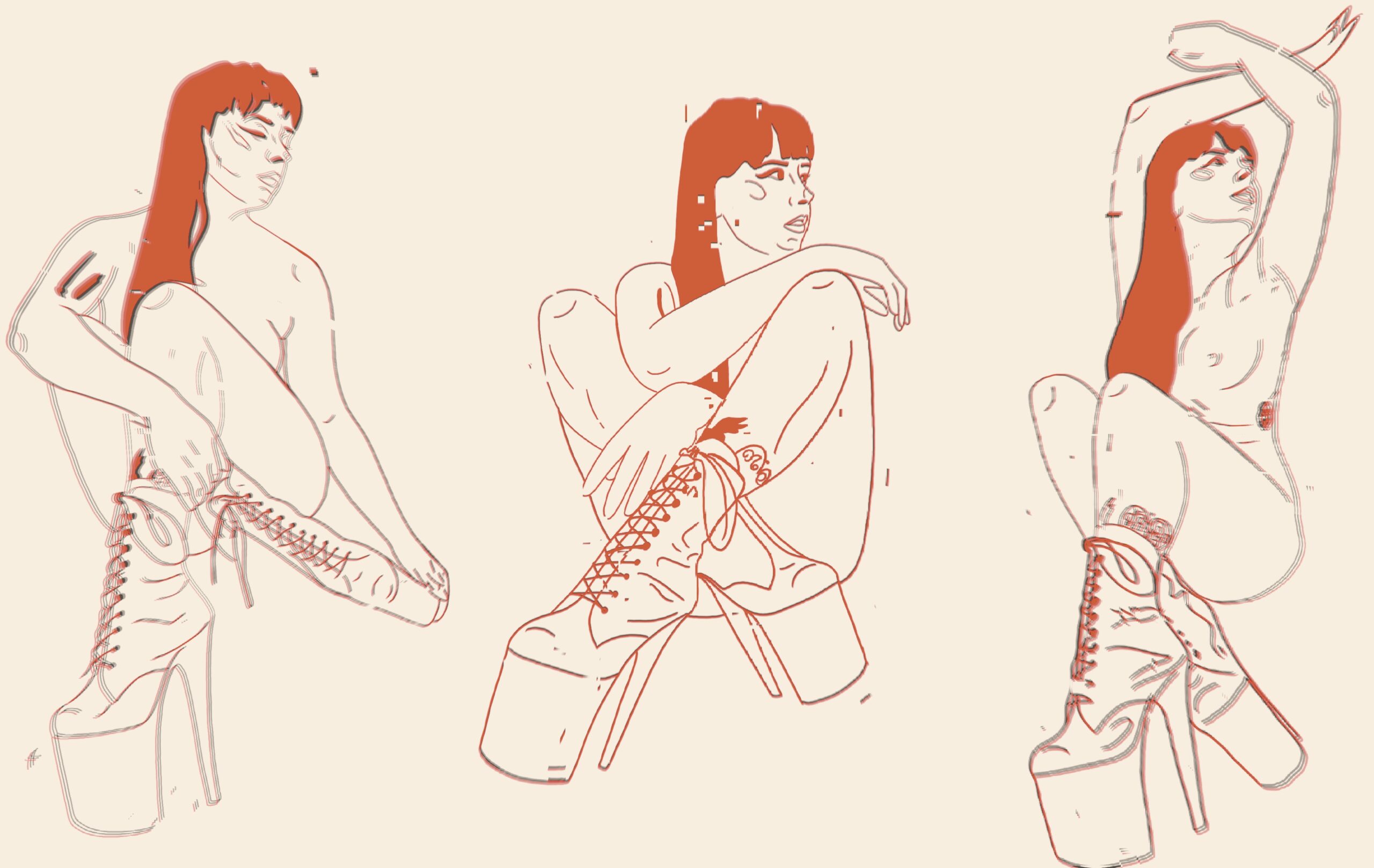
Life moved on. Another city move happened, I got a boyfriend, lost a boyfriend, moved flats, attended university. My self esteem plummeted further and further, I would run the shower on hot for 25 minutes to steam up the mirrors just to avoid seeing my own body. Then, quite out of nowhere, I saw a poster advertising circus classes. What possessed me I will never know, but I ripped the poster off the bus stop and took it home. It took a couple of gin and tonics to work up the courage, but I booked my class. I was going to be a showgirl! The first class was awful – I had no idea what I was doing, no connection to my body, I learned that most of the time I wasn’t even moving the way I thought I was. But I was hooked. I started training every week, twice a week, three times a week. I learned aerial hoop, static trapeze, flying trapeze, aerial silks, aerial hammock, aerial cube, contortion, pole dance – pole dance was the scariest one, that meant actually stripping. I was far from a natural, but I did progress. After a few conventions I was ready to perform. I remember shaking backstage before my first performance so much I nearly cried, and the performance itself felt like an out-of-body experience, but I got through it. Getting to meet and make friends with real-life showgirls just made me love them even more. They represented solidarity, acceptance, community. It even crept its way into my work – my undergraduate dissertation was about show girls, an analysis of the cultural interpretations of occupying aerial space. I began to take my costumes and big shoes into the art space and model for fine art painters and for life drawing classes, using my performance skills to be an interesting and dynamic model for them. I was on a high, I’d never felt so confident or assured in my own skin.
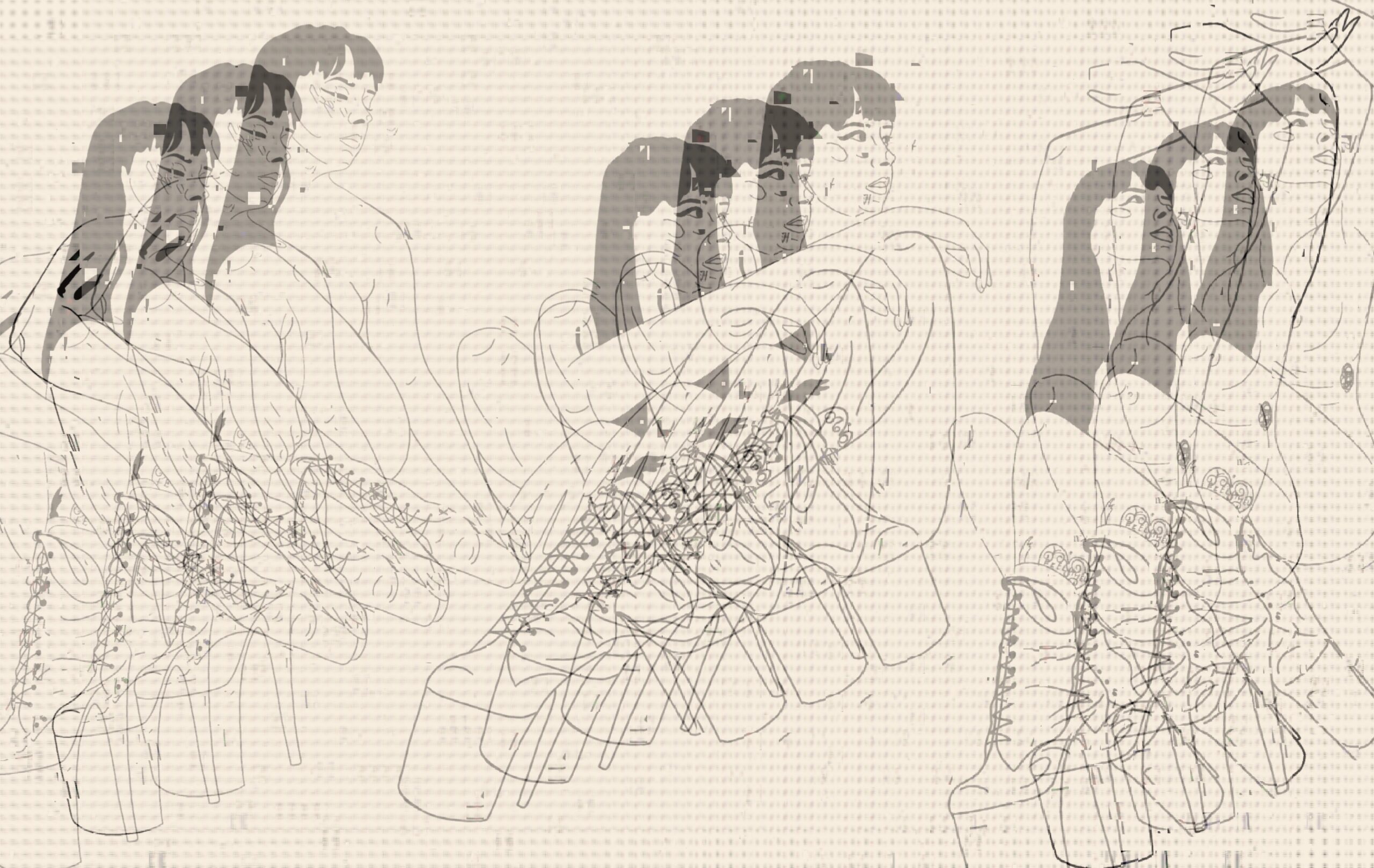 Another city move came and – to my dismay – I couldn’t find another circus school to train in; and I couldn’t find anywhere who wanted that type of performance. Away from my friends, I lost my skills, my muscles and my strength. And, then I met another boyfriend, who made it clear that this type of behaviour was “degenerate”, and unwelcome in our house. My big heeled show shoes gathered dust, my costumes went “missing” or got sold on eBay, and my glittery makeup lay abandoned and rotting in a drawer. My old insecurities came back. The beautiful band of sassy, glittery, special women capable of commanding the attention of a whole room was no longer there to cheer me on and hold me up. A part of myself was lost. One day, on a whim, I bought an X-Pole and put it up in my room, and I started going over the basic pole dancing skills I knew. I repaired the big shoes. I sought out new costumes. And – upon my return home to Aberdeen – the lovely band of artists asked for their showgirl back for life study sessions. The first few were terrifying; I’d forgotten how to command a room, how to be in control. But slowly, slowly, you remember.
Another city move came and – to my dismay – I couldn’t find another circus school to train in; and I couldn’t find anywhere who wanted that type of performance. Away from my friends, I lost my skills, my muscles and my strength. And, then I met another boyfriend, who made it clear that this type of behaviour was “degenerate”, and unwelcome in our house. My big heeled show shoes gathered dust, my costumes went “missing” or got sold on eBay, and my glittery makeup lay abandoned and rotting in a drawer. My old insecurities came back. The beautiful band of sassy, glittery, special women capable of commanding the attention of a whole room was no longer there to cheer me on and hold me up. A part of myself was lost. One day, on a whim, I bought an X-Pole and put it up in my room, and I started going over the basic pole dancing skills I knew. I repaired the big shoes. I sought out new costumes. And – upon my return home to Aberdeen – the lovely band of artists asked for their showgirl back for life study sessions. The first few were terrifying; I’d forgotten how to command a room, how to be in control. But slowly, slowly, you remember.
Women are the sponge for societies insecurities. If a man (like the boyfriend who asked me to stop dancing) is insecure about their body, their sexuality, their abilities – they will project that on to how they view women. If they can’t be secure in their sexuality, body, talents, then no one else can – certainly not a female partner. In many ways, women are socialised to see other women as threats. If they’re more attractive and confident than you, that’s a threat – and it’s easier to just call them a bitch or some such, than it is to address the massive insecurity you have. And on top of all that – from a very early age, women are bombarded with messages about how to lose weight, how to hide saggy boobs, how to have less cellulite. Buy the makeup, cover up the spots! Dye your hair a prettier colour. Women’s magazines are all together too often – the idealised (read; Photoshopped) body on the cover, page 4 is an article on healthy social media use, page 6 is an article on how to love yourself, page 8 is a makeup tutorial, page 10 is an article on easy at home work outs, page 13 is an article about men preferring women with less makeup, page 15 is how did this actress lose all her baby weight, and page 25 is a recipe for chocolate cake, all interspersed with highly edited images showing “perfect” bodies, and products promising everything from whiter teeth, to longer hair, to less spots, to shinier skin. In so many ways, women are off to a bad start, they aren’t socialised to love themselves for who they are.
